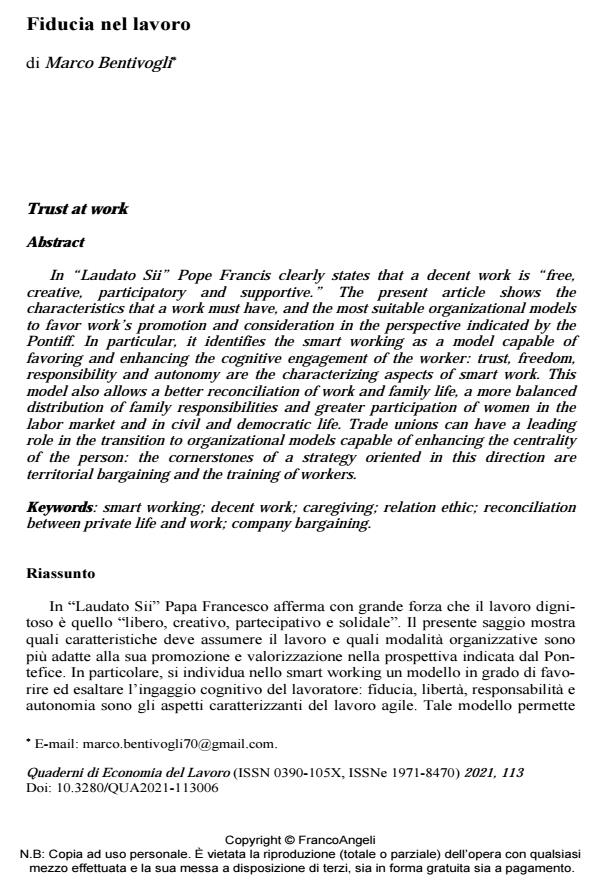Trust at work
Journal title QUADERNI DI ECONOMIA DEL LAVORO
Author/s Marco Bentivogli
Publishing Year 2022 Issue 2021/113
Language Italian Pages 21 P. 145-165 File size 243 KB
DOI 10.3280/QUA2021-113007
DOI is like a bar code for intellectual property: to have more infomation
click here
Below, you can see the article first page
If you want to buy this article in PDF format, you can do it, following the instructions to buy download credits

FrancoAngeli is member of Publishers International Linking Association, Inc (PILA), a not-for-profit association which run the CrossRef service enabling links to and from online scholarly content.
In "Laudato Sii" Pope Francis clearly states that a decent work is "free, creative, participatory and supportive. The present article shows the characteristics that a work must have, and the most suitable organizational models to favor work’s promotion and consideration in the perspective indicated by the Pontiff. In particular, it identifies the smart working as a model capable of favoring and enhancing the cognitive engagement of the worker: trust, freedom, responsibility and autonomy are the characterizing aspects of smart work. This model also allows a better reconciliation of work and family life, a more balanced distribution of family responsibilities and greater participation of women in the labor market and in civil and democratic life. Trade unions can have a leading role in the transition to organizational models capable of enhancing the centrality of the person: the cornerstones of a strategy oriented in this direction are territorial bargaining and the training of workers.
Keywords: smart working; decent work; caregiving; relation ethic; reconciliation between private life and work; company bargaining.
Marco Bentivogli, Fiducia nel lavoro in "QUADERNI DI ECONOMIA DEL LAVORO" 113/2021, pp 145-165, DOI: 10.3280/QUA2021-113007